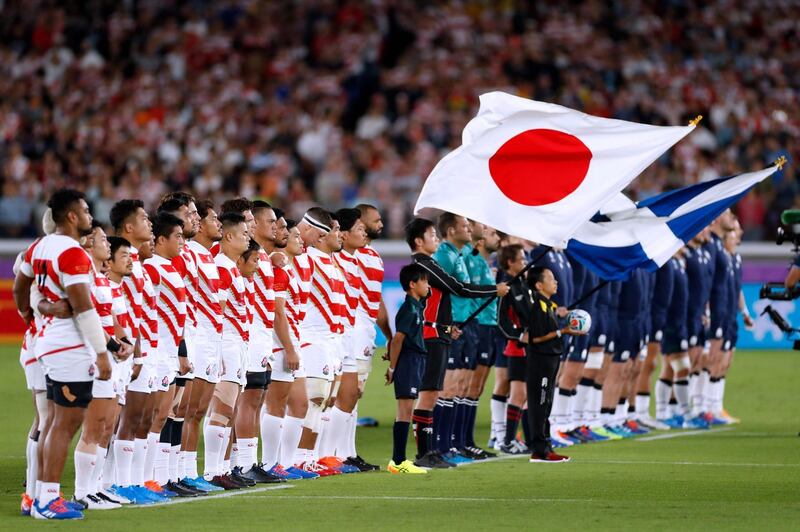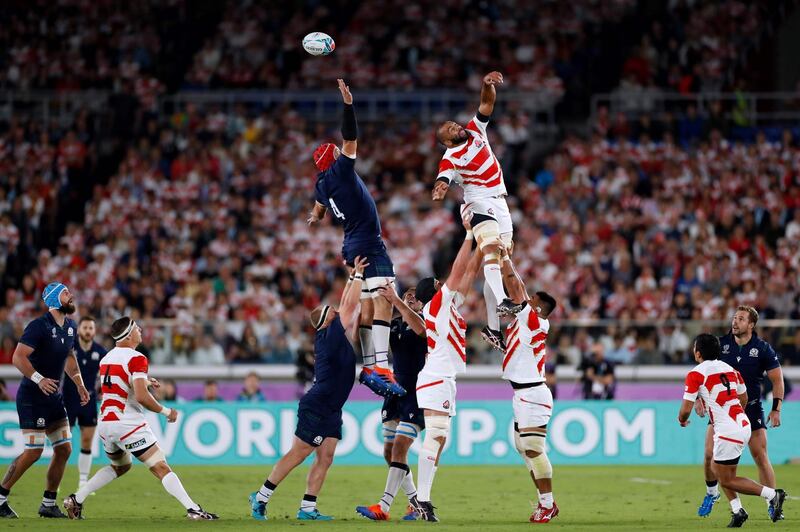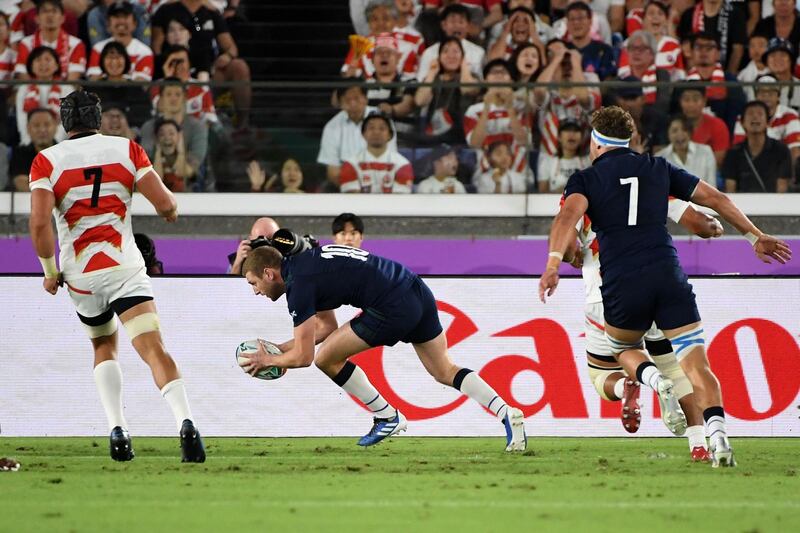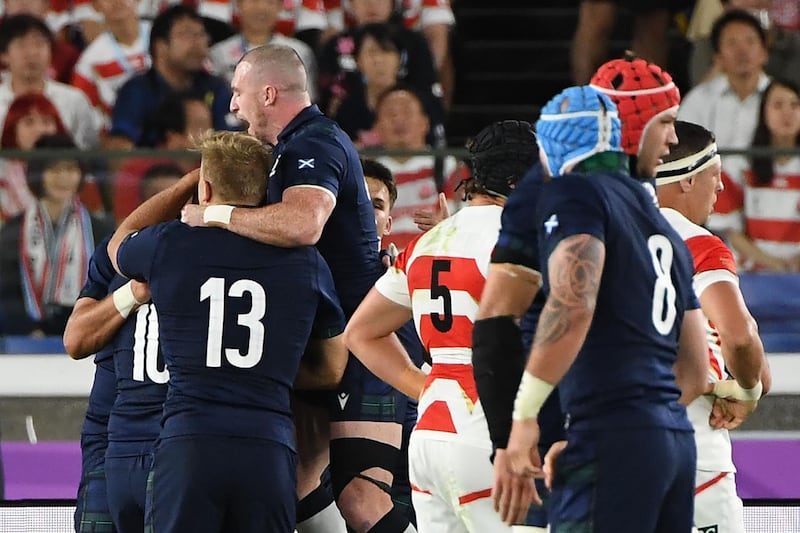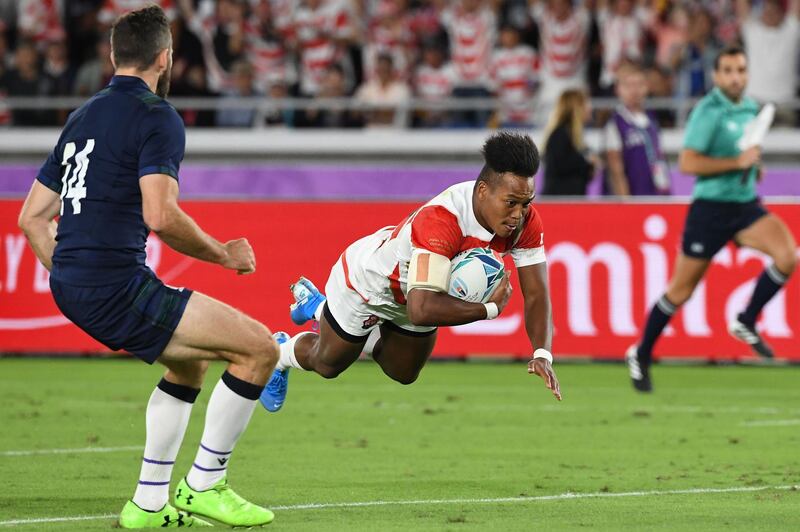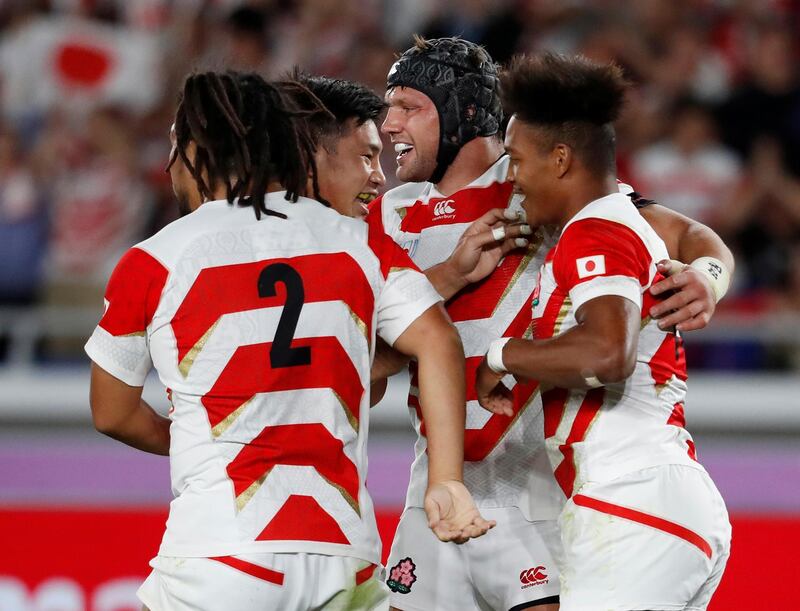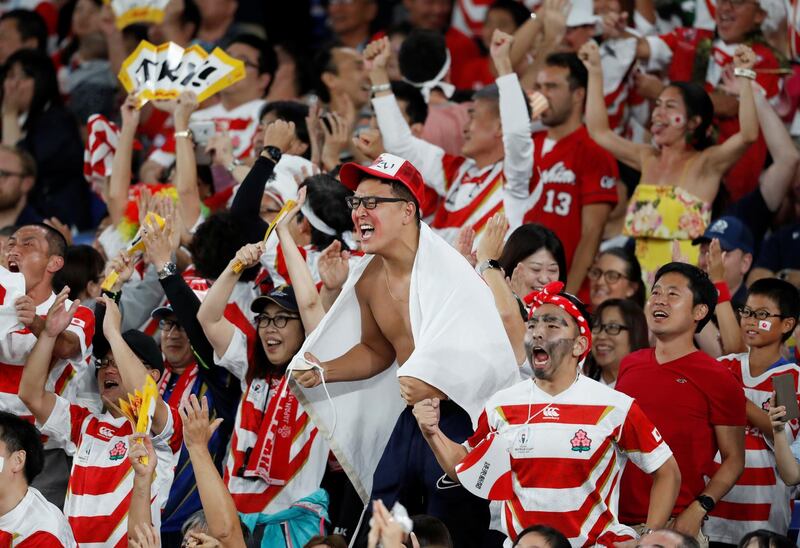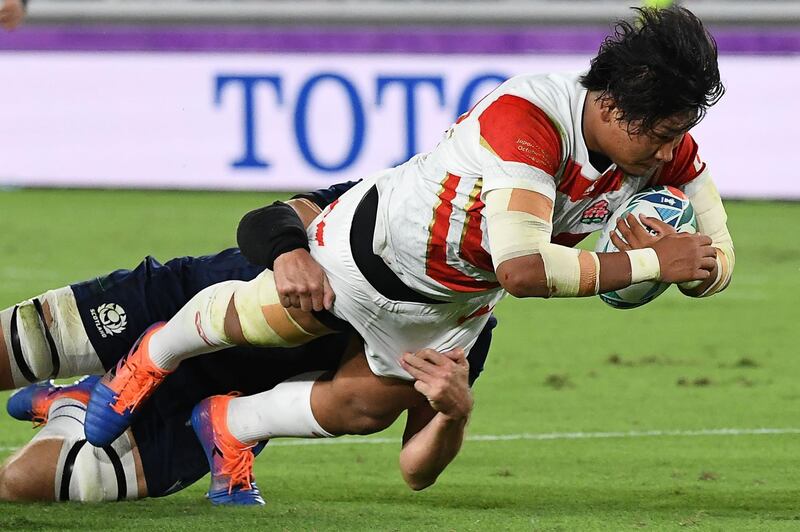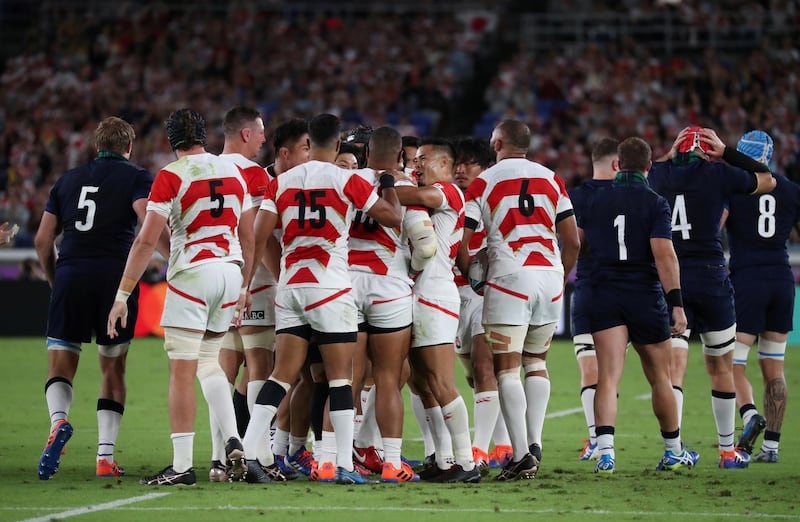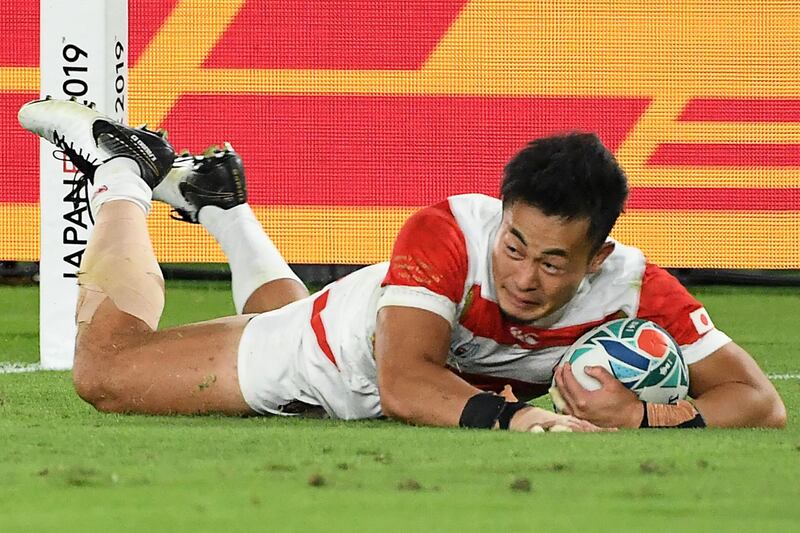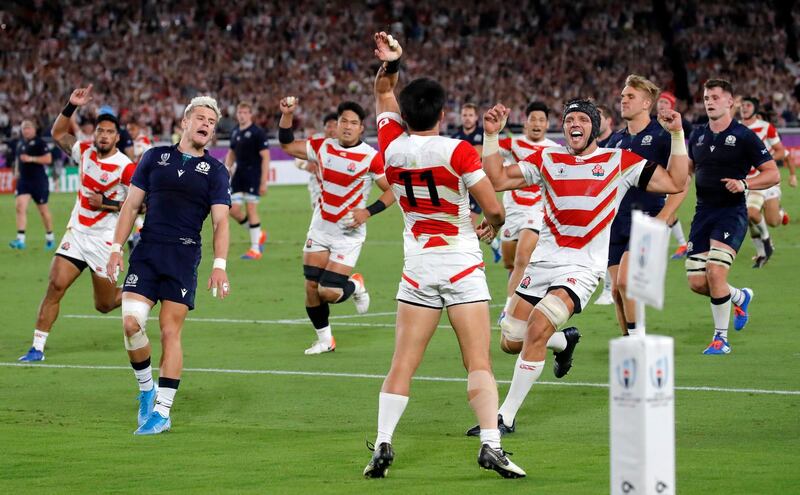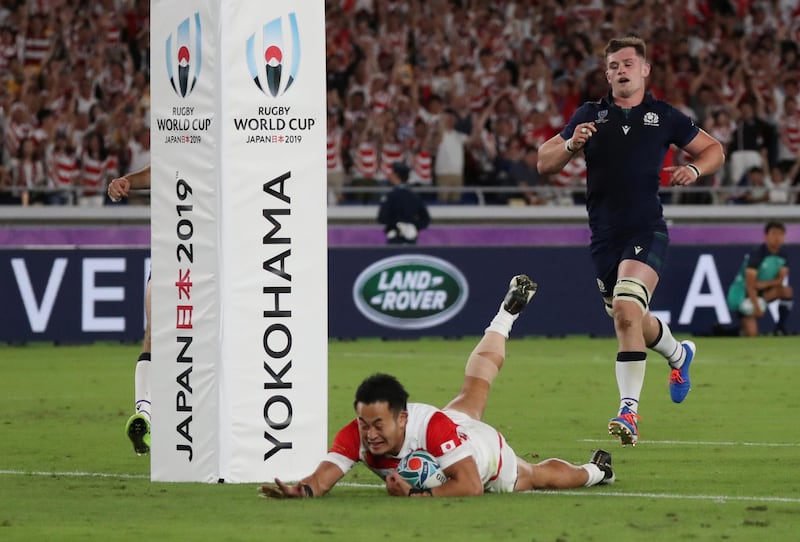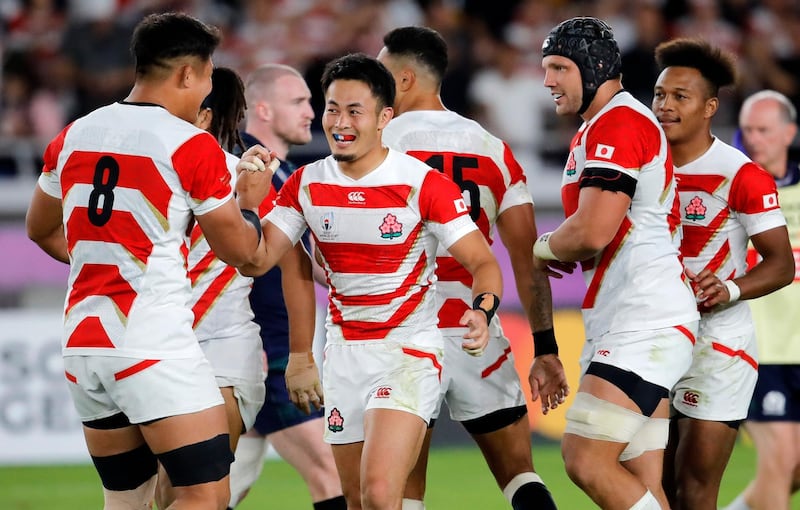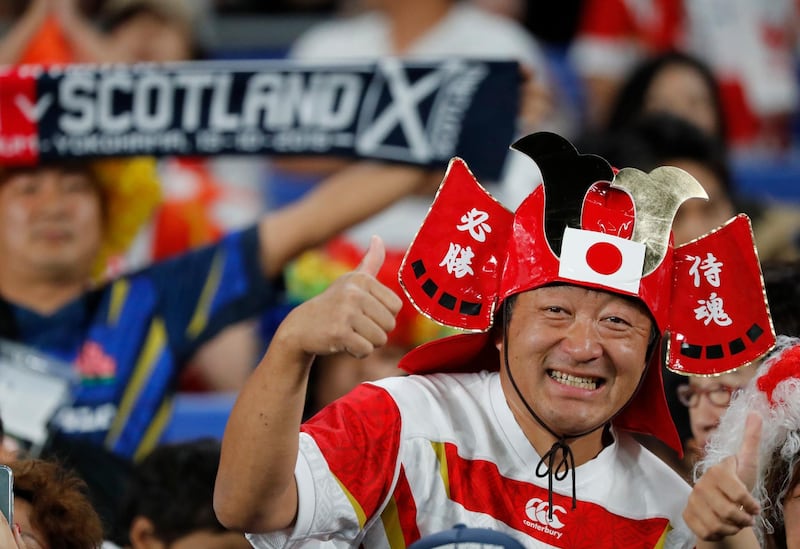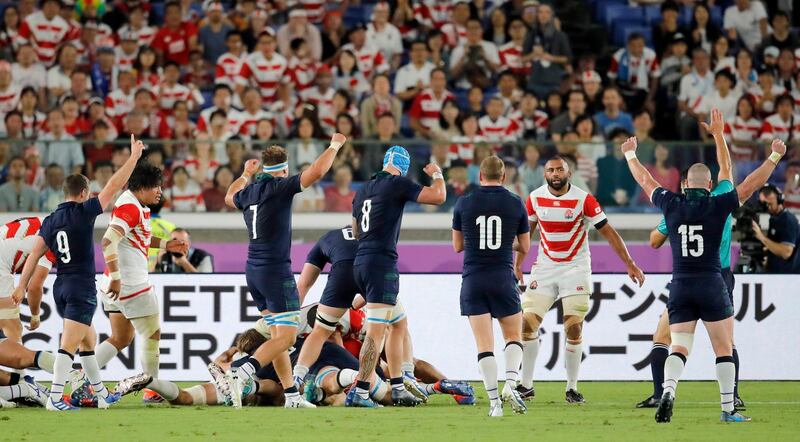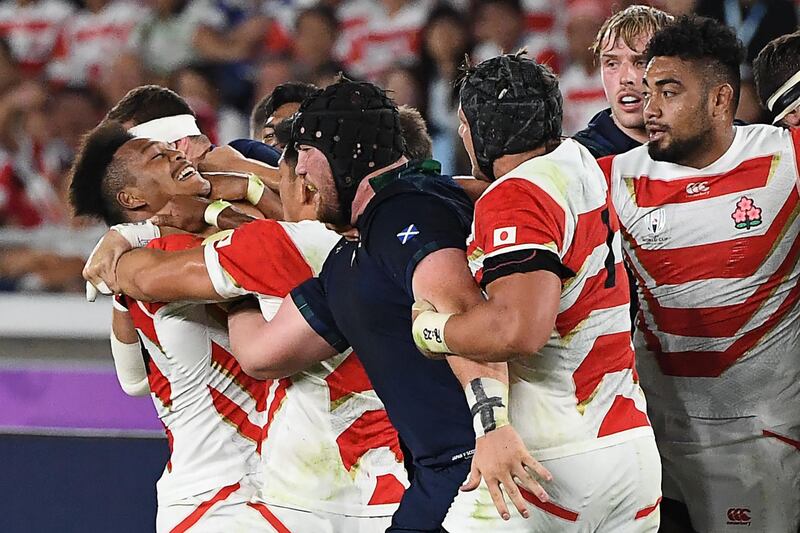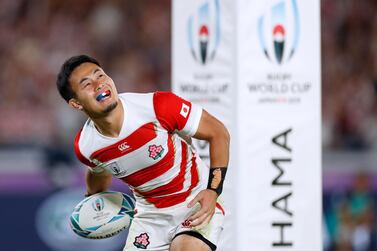The match that many thought would never be played might never be forgotten.
Certainly not in Japan, where a country dealing with issues far more important than sport could be forgiven for indulging in a glorious distraction.
At the time of kick-off, the storm that had caused such devastation was still passing through the country, by now downgraded to a tropical depression.
Typhoon Hagibis had left at least 15 dead, with more than 140 injured, and many missing. It was being described as the worst storm to hit the country in 60 years.
The clean-up and search and rescue operation was being staffed by far more people than had crammed inside the stadium in Yokohama.
Those left playing rugby at a time like this might have felt helpless, or at least out of place.
There was a moment of silence pre-kick-off when a number of the players were moved to tears. Spectators from either side did similar during the anthems.
The occasion could scarcely have been heavier laden with emotion. But Japan’s players knew what they needed to do.
In the 43rd minute, Kenki Fukuoka scored a brilliant solo try to give the Rugby World Cup hosts a bonus point that pushed them to the brink of the quarter-final stage.
It meant Scotland needed to win by eight or more to leapfrog them in the standings. At the time they were 28-7 down. The Highland jig was as good as up.
In the 80th minute, Fukuoka made the turnover, deep in his own 22, which ensured the game was won for his side. A minute later, the ball was booted into the euphoric masses in the stands.
Japan were 28-21 winners against Scotland. It was their fourth win out of four in the pool stage, a faultless record in a group that included the team who started the tournament as the world’s No 1 ranked side.
A side who have played at all nine World Cups had made it out of the group stage for the first time. An Asian side through to the knockout stage, in Asia’s first World Cup. They were heroes.
The number one priority of the organisers of this tournament ahead of this game had rightly been safety in the wake of the typhoon.
If travel to and from the stadium was in any way inhibited, it did not show. Every seat appeared to be filled, with the overwhelming majority wearing the red and white shirts of the home nation.
Some wore miniature flags – of both teams – painted on to their cheeks.
Children had daubed black make up on their chins, and thickened their eyebrows, in homage to Japan’s much-loved captained Michael Leitch.
Leitch is reportedly the second most recognised public figures in Japan, after Prime Minister Shinzo Abe.
When he spoke in his onfield interview at the end, he was perfectly in tune with his audience.
“This game was all for you guys,” Leitch said, a statement meant to go beyond those watching in person. “It was more than just a game for us. Our heart goes out to all the people affected [by the storm]. We played with our heart. It was not about skill, it was all about emotion.”
Emotional maybe. But perhaps just a little bit of skill, too.
Like when Fukuoka made a tumbling offload for Kotaro Matsushima to score the try that erased the deficit after Finn Russell’s opening score for Scotland.
And the multi-offload masterpiece that brought Keita Inagaki their second try, under the post, to not so much a roar from the crowd as a sonic boom.
And when Fukuoka, who was handed the player of the match award after by Naomi Osaka, plucked a bouncing ball from the air one-handed to score their third. And his rip and run for the decisive fourth after the break.
Yes, Japan are heading in to the last eight on a wave of emotion. But those who lay in wait should know, they can play a bit, too.
“These guys have a lot of belief now, and realise what it takes to get across the line,” Jamie Joseph, Japan’s coach, said.
